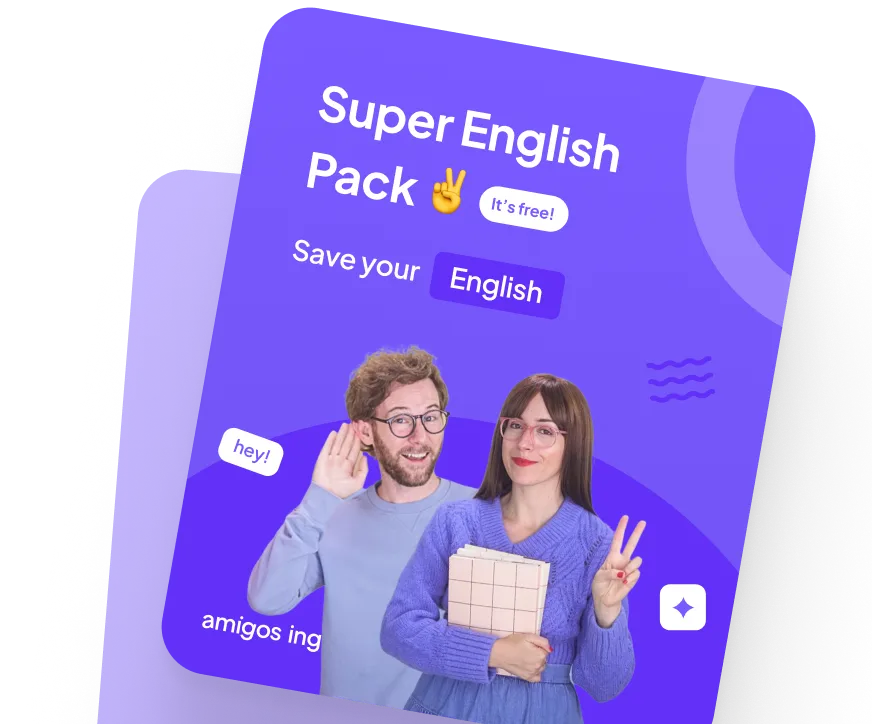Reported speech en inglés: explicación y ejemplos

Reported what? 😳 Reported speech! Es nuestra manera de llamar al estilo indirecto en inglés. Te voy a ayudar a entender cómo se usa y se forma con un montón de ejemplos prácticos.
El ‘reported speech’ o ‘indirect speech’, es el estilo de comunicación por excelencia de los vecinos cotillas.
¿Quieres dominarlo “forever and ever”? Let’s go!
Los tiempos verbales
Present simple ⇨ Past Simple
I’m from Spain. ⇨ He said he was from Spain.
I love speaking in English ⇨ She said she loved speaking in English.
I live in London. ⇨ He said he lived in London.
Present Continuous ⇨ Past Continuous
I’m resting on the sofa. ⇨ He said he was resting on the sofa.
You’re driving on the wrong side. ⇨ She said I was driving on the wrong side.
You’re working too hard. ⇨ She told me I was working too hard.
Past Simple ⇨ Past Perfect
I drove to Paris yesterday. ⇨ He said he had driven to Paris the previous day.
I woke up in hospital. ⇨ He said he had woken up in hospital.
I worked last Sunday. ⇨ He said he had worksed last Sunday
Present Perfect ⇨ Past Perfect
I’ve bought a new cushion. ⇨ She said she had bought a new cushion.
I’ve swum with sharks. ⇨ She said she had swum with sharks.
I’ve swallowed my chewing gum. ⇨ He said he had swalloed his chewing gum.
Past Perfect ⇨ Past Perfect
¡Buenas noticias! No hay que cambiar el tiempo verbal para pasarlo a ‘reported speech’.
The jury had had many doubts about the case. ⇨ She said the jury had had many doubts about the case.
Can ⇨ Could
I can’t understand Scottish people. ⇨ She said she couldn’t understand Scottish people.
I can play the piano. ⇨ He said he could play the piano.
I can cook for you. ⇨ He said he could cook for me.
Will ⇨ Would
I’ll take the rubbish out this evening. ⇨ He said he would take the rubbish out that evening.
I’ll love you forever. ⇨ She said she’d love me forever.
I’ll speak to the manager. ⇨ He said he would speak to the manager.
Los pronombres personales
Al igual que ocurre con los verbos, también debemos tener en cuenta que al pasar la oración a estilo indirecto, el pronombre personal o posesivo concuerde.
Ryan told me: “I‘m in a bit of a rush.”
Ryan told me he was in a bit of a rush
My mum said: “I’m coming to your place for lunch”.
My mum said she was coming to my place for lunch.
Los adverbios de tiempo y de lugar
Al cambiar a estilo indirecto, damos un paso atrás en el tiempo, por tanto ‘hoy’ será ‘ese día’, ‘esta noche’ será ‘esa noche’, mañana será ‘el día siguiente’, etc.
I will speak to you tomorrow.
She said she would speak to me the next/ following day.
Frases del ejercicio
Direct speech
Reported speech
That’s all for now students!
Si todavía tienes este tema un poco verde, te recomiendo seguir practicando con estos ejercicios de nuestra amiga londinense Sionaid de Perfect English Grammar. Accede aquí a los tests.
La semana pasada hubo también clase de gramática en Amigos Ingleses, si no sabes la diferencia entre los adverbios ‘especially’ y ‘specially’, ve corriendo a ver esta clase de inglés.
¡Esperamos que te haya gustado esta clase! Si tienes alguna duda o quieres saludarme, hablamos en los comentarios.
See you later alligator! 👋
.svg)



Únete a más de 100.000 estudiantes en todo el mundo y gana más fluidez en solo 7 días, entrenando con el Super English Pack.


.svg)

Entrena tu comprensión oral con audios, diálogos, historias y conversaciones.
.webp)



Aprende a decir cientos de frases en inglés como un nativo! 💂🏻♀️🇬🇧
.svg)
.webp)


.png)








